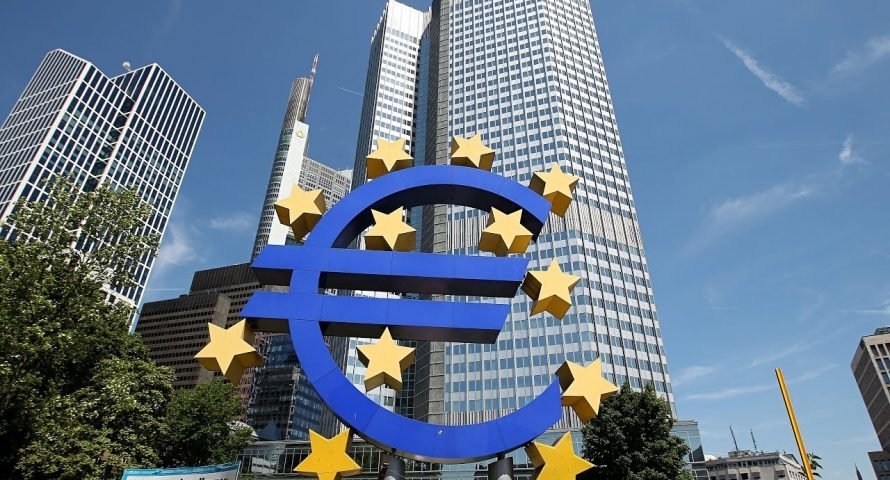
ECB: Quantitative Easing Programme Will End in December

Quantitative Easing Programme
European Central Bank stated last week that it had already started taking steps to bring an end to its €2.4 trillion (£2.1 trillion) net bond purchasing by December 2018, depending on “incoming data.” ECB further stated that its first step would be a reduction in the monthly purchases of government and corporate bonds from the current €30bn to €15B in October and by December, it would have entirely stopped purchasing bonds.
Sources claim that the monthly purchase of bonds which began in 2015 was an asset purchase strategy deployed by the Central bank in a bid to assist in its increment of the single currency money supply and to maintain an inflation rate that ranked close to 2%. Reportedly, the programme had yielded an extra sum of €2.4 trillion to eurozone economies as at April, and the annual inflation in the eurozone was 1.9% in May.
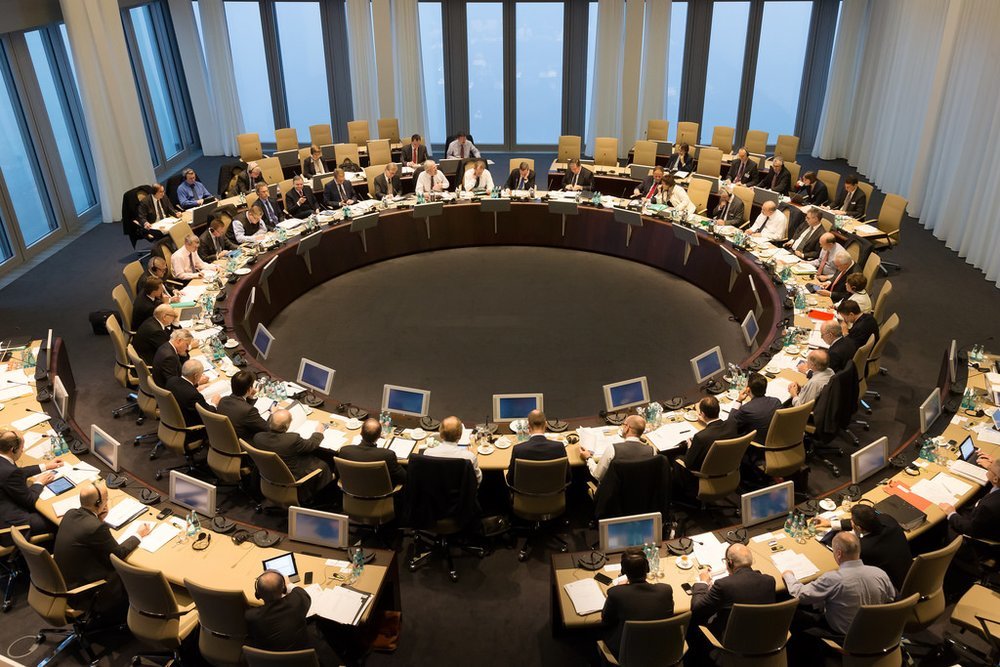
Bond buying programme began in 2015 in a bid to increase the money supply of eurozone single currency
Reports indicated that the recent decision of the ECB stood as a representation of the bank’s opinion that the eurozone economies had successfully survived the period of recession and weakness and could now stand and thrive without the support furnished by monetary programmes.
Media outlets reported that the governing council of the European Central Bank decided to maintain the initial interest rate of 0.4% on deposits. The council further stated that it had expectations that the primary ECB interest rates would remain at their current levels throughout the summer next year and hopefully further than that period. The council expressed that this would ensure that the inflation evolution was in alignment with the present expectations of sustaining the ECB’s adjustment plans.
The ECB stated its intention to maintain its original policy to reinvest the principal sum gotten from maturing securities purchased beyond the end of the Quantitative Easing programme. Media outlets have also reported that the refinancing rate of the bank would remain at the current zero percent.
Inflation Trends
Sources claim that soon after the release of the Central Bank’s statement, euro dropped with 0.81% to about £0.88 ($1.1693). Further, it was reported that the returns on Italian 10-year bonds and other securities that recently exhibited volatility due to Rome’s political turmoil didn’t experience any value drop and maintained stability at 2.798%.
Reports also indicated that the inflation in the single currency was 1.9% in May which was an increase from the 1.2% in April and a leveling up with ECB’s less than 2% target rate. The reports, however, indicated that core inflation, with the exclusion of volatile food and energy, remained at 1.1%. The GDP growth reportedly dropped from 0.7% in the last quarter of 2017 to 0.4% in the first quarter of this year.
In recent forecasts, the ECB brought down its initial 2018 GDP projection from 2.4% to 2.1% and the Central Bank left the forecasts for the next two years at 1.7%. Sources claim that the ECB stated that the 2018 inflation rate is 1.7% and this stood as an increase from 1.4% as projected in March.
Speaking at a press conference, president of European Central Bank, Mario Draghi stated that different risks to the growth of the eurozone economies were still in existence. According to the ECB President, the dangers that surrounded the eurozone growth outlook maintained a full balance. However, he added that uncertainties surrounding specific global issues, such as increased protectionism, had gained more prominence and importance.
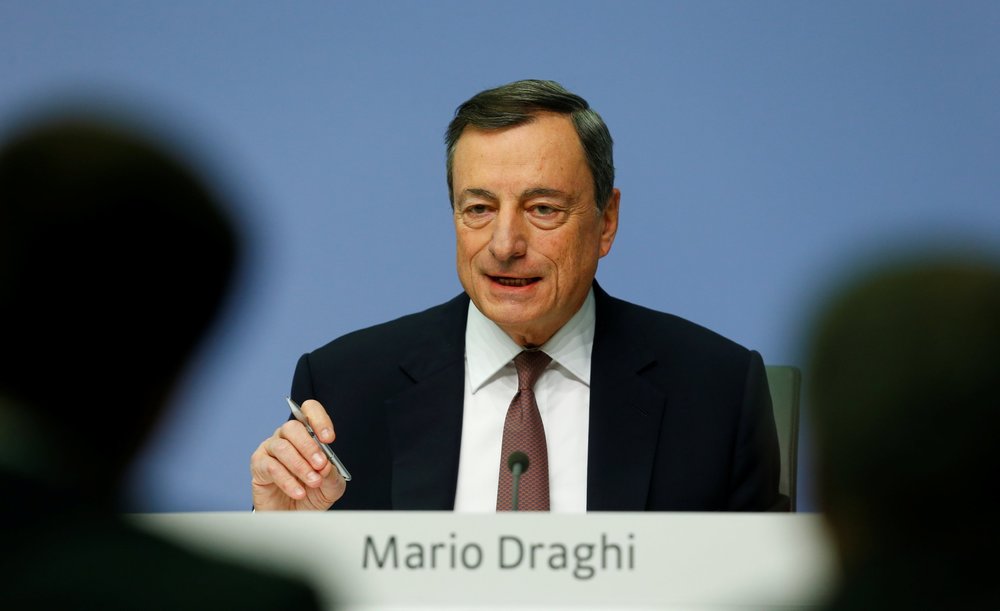
Mario Draghi stated that different risks to the growth of the eurozone economies still existed
Opinions On Ending QE Programme
While reacting to the ECB announcement, Jennifer McKeown who works at Capital Economics stated that the statement by ECB that it would bring an end to asset purchases by the end of the year was bolder than the market expectations. She further stated that the plan to leave the interest rates at their current position for more than one year made the news more bearable.
Patrick O’Donnell who works at Aberdeen Standard Investments also stated that the announcement was a cautious message from the Central bank. He further said that by announcing that the Quantitative Easing programme would come to an end by December, but the interest rates would remain unchanged, the ECB president was giving out a thing with one hand and collecting it back with the other.
More in Advisor
-
`
Will Bitcoin Crash to $0 or Hit $500K in a Decade?
Bitcoin’s future divides analysts into two extreme camps. Some see it becoming one of the most valuable financial assets in history....
October 12, 2025 -
`
Can Anyone Really Blame Mariah Carey for ‘Leaving’ the Real World?
Mariah Carey isn’t like the rest of us. From the moment she opens her mouth and that voice pours out, she...
October 10, 2025 -
`
Intel Invests in Nvidia, but Ratings Remain Unchanged
Intel’s stock jumped more than 30% after news broke that Nvidia poured $5 billion into the company. The rally sparked renewed...
October 5, 2025 -
`
Homeownership vs. Real Estate Investment: What’s Better?
Homeownership has long been seen as the American dream. But today, more people are asking: Is it really the smartest way...
October 3, 2025 -
`
Why the Armani Fashion Empire Is Set for an IPO
Giorgio Armani, one of the most iconic names in global fashion, left behind a detailed plan for the future of his...
September 27, 2025 -
`
Why Do Pokémon Cards Outperform the S&P 500 As an Investment?
Pokémon cards have outperformed the stock market by a mile. Since 2004, they have delivered a staggering 3,821% return, according to...
September 27, 2025 -
`
America’s Billionaires Get Older—Millennials Wait for Wealth Transfer
Many of today’s billionaires don’t match the youthful tech-founder image often portrayed. While names like Elon Musk, Sam Altman, and Mark...
September 21, 2025 -
`
Can President Trump Legally Fire Fed Governor Lisa Cook?
Lisa Cook is right in the middle of one of the most explosive legal battles in Washington. President Trump wants her...
September 20, 2025 -
`
Jeff Bezos’ Advice for Millennials Who Want Financial Success
Millennials today have grown up in a world where instant access to products and services is the norm. From two-day deliveries...
September 13, 2025

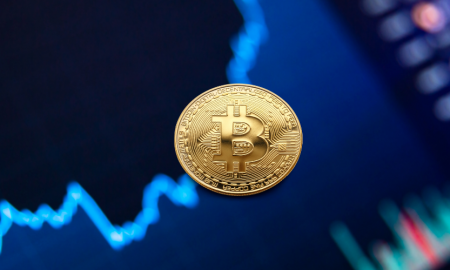





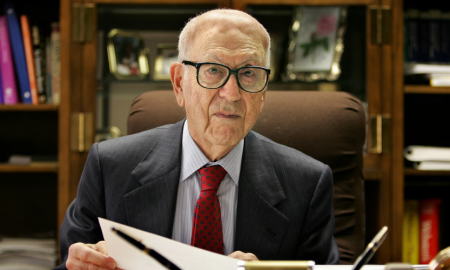
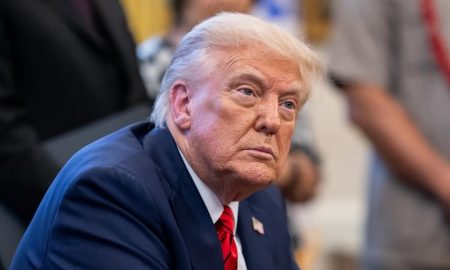






You must be logged in to post a comment Login